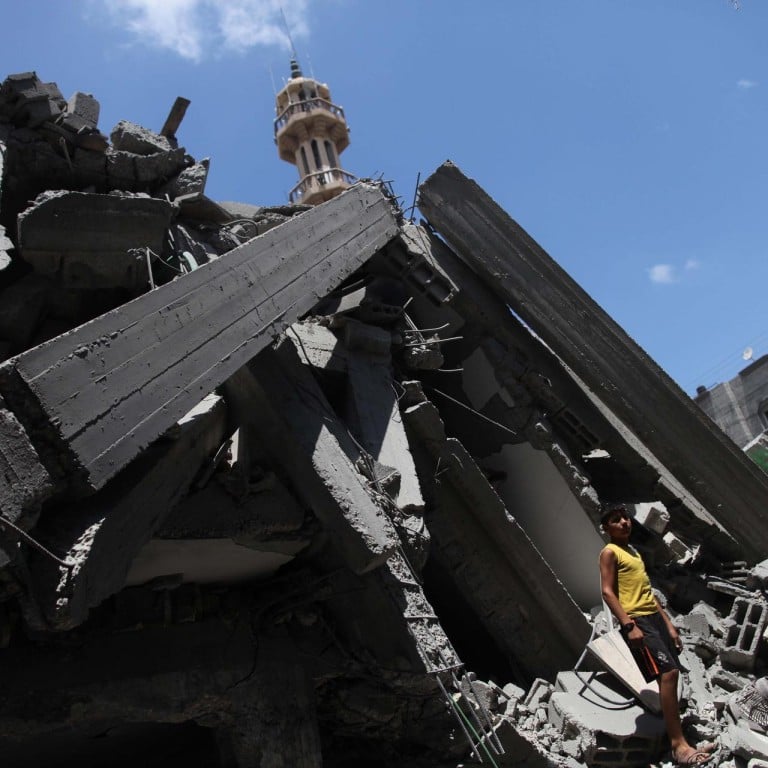
Once off limits in Jewish/Palestinian conflict, mosques now military targets
A yellow bulldozer clawed through the rubble of al-Qassam mosque, searching for the last body. The crowd looked on without emotion, as they had throughout a day during which two other corpses were unearthed.
A yellow bulldozer clawed through the rubble of al-Qassam mosque, searching for the last body. The crowd looked on without emotion, as they had throughout a day during which two other corpses were unearthed. Someone had planted a green Hamas flag atop the debris, at once a sign of mourning and defiance.
"The Israelis have the idea that Hamas owned the mosque, and they do suspicious activities inside," Ahmed Jabbar, 42, said, standing near the debris. "They think there are tunnels inside. It's all lies. This is Allah's house. Anyone can go inside it."
Attacking a mosque was once viewed as crossing a red line in conflicts pitting Jews or Christians against Muslims.
Now the mosque has become a military target. Israel's military says mosques are being used to store weapons, cover tunnels, shelter fighters and serve as command control centres and launch sites for rockets. Palestinians say when Israel strikes a mosque, it mostly kills civilians and destroys their religious sanctuary.
In the month-long war, Israeli air strikes have struck more religious targets than in Israel's two previous offensives against Hamas in 2009 and 2012, Palestinians say. According to the Palestinian Liberation Organisation, 63 mosques have been destroyed and 150 have been partially damaged. Ten Muslim cemeteries were also targeted.
Surprisingly, there has been little outrage from ordinary Palestinians or from the broader Muslim world. Violent upheavals across the Middle East, political analysts say, have acclimated Muslims to seeing their houses of worship under siege. Arabic news channels and Facebook and other social media have been filled with scenes of mosques pocked with bullets and damaged by attacks in recent conflicts and revolutions in Egypt, Syria and Libya.
The shock value is over, say analysts.
"A strike against a mosque is no longer sensational because of how commonplace it has become in conflicts around the region, and between Israel and Hamas," said Nathan Thrall, a senior analyst at the International Crisis Group covering Gaza, Israel, Jordan and the West Bank. The absence of much umbrage in the Arab world is also a reflection of its overall detachment to the Gaza conflict, analysts have said.

